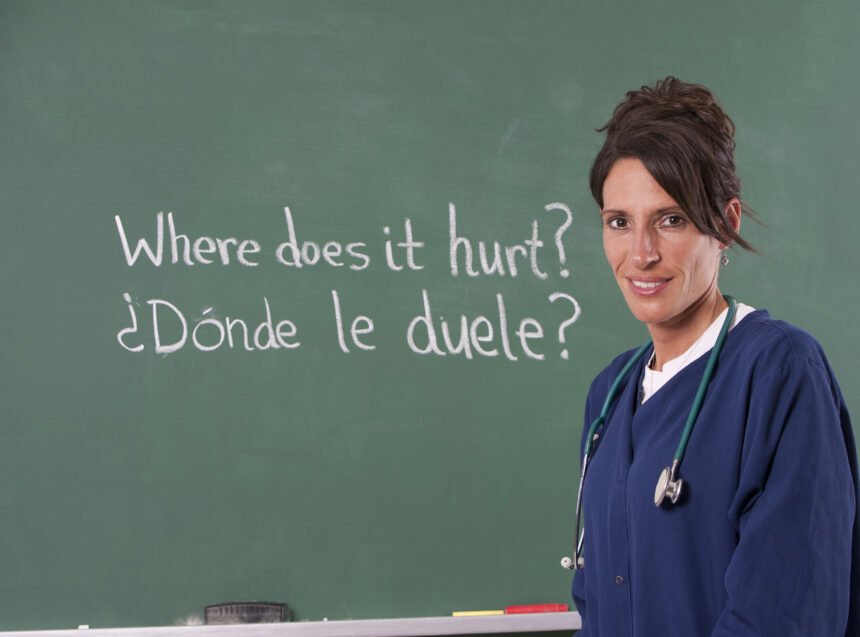Medical research occurs all over the globe. No single country has a monopoly on research. New discoveries, procedures, pharmaceuticals, and others come from everywhere. Fortunately, the international community of medical professionals is much smaller, thanks to technology. They can share their research throughout the world. The issue, of course, is in translation, and the need for professional medical translators.
Consider all of the types of medical writing that might require translation:
- Journal articles
- Full publications
- Research reports
- New product descriptions and protocols
- Surgical procedures
- Clinical trials
- Conference presentations
Beyond this, there are the needs for translators when people who do not speak the local language are under the care of medical professionals, either in their offices or in the hospital.
What Can Go Wrong?
The short answer is a lot. Simply being fluent in two languages does not make a translator, especially when the content of those translations is highly technical or scientific. Translators in these fields must have subject matter expertise as well as language fluency, or critical information can be misinterpreted, leading to mistakes for those in the target language who are relying on that translation. In the case of medical translations, these mistakes can actually be life-threatening.
The Case of Willie Ramirez
In 1980, a comatose Hispanic teenager was taken to a Florida hospital emergency room by his parents. The parents did not speak English, and the hospital was able to find a staff member who spoke Spanish who could act as an interpreter. The parents used the word “intoxicado” and it was translated as “intoxicated.” In reality, this word in Spanish means poisoned, not drug or alcohol-induced illness. The teen was treated as if he had intentionally overdosed. In fact, he had a cerebral hemorrhage, and, because of the delay in treatment, he was rendered a quadriplegic. Even a malpractice settlement of $71 million did not give him his mobility back.
This, of course, is a bit of an extreme case, but it points out the need for translators who have medical backgrounds. A 2011 study showed that medical professionals in hospitals are not equipped to treat an increasing population of non-native speakers. Unable to understand what these patients are saying, they revert to general diagnosis protocols – protocols that may not result in a correct diagnosis, or, at best, a delayed one.
Poor Translations of Written Materials
Beyond the issues of interpretation for patients, there are the issues of translating all of those documents mentioned above. Accuracy is critical, especially when research is reported and when protocols are an important part of the documents. When medical translations are completed by non-medical individuals, the issues are as follows:
- Terminology
Medical terminology is not just technical, it is constantly evolving as the profession grows. Translators in this field have to engage in continued professional development in order to stay abreast of this new terminology. And, if they have any questions, they must dig into research or hold discussions with the author.
Even existing terminology can be confusing and must be interpreted within the context of what is written. For example, the term “OHT” may mean “Orthostatic hypertension,” “ovarian hormone therapy,” or “orthotopic heart transplant.” A translator schooled in medical terminology will be able to distinguish which of these should be used within the context of the piece.
- Issues of Syntax
This issue is not isolated to medical translations but it can cause serious issues. Basically, syntax is the arrangement and the relationship of words in sentences. A medical translator must ensure that the correct syntax in the target language is used, lest there be mis-interpretations in meaning. Grammatical mechanics such as punctuation are critical too. Consider the following two phrases: 1) “When are we going to eat, Grandma?” vs. 2) “When are we going to eat Grandma?” To get correct grammar and syntax, a medical translator may often have to re-arrange words, add or eliminate phrasing, etc. Only a medical translator with deep understanding of the field will be able to do this and keep the meaning intact. It is no surprise, then, that qualified medical interpreters and translators are in short supply.
Looking Toward Solutions
- One obvious solution is to train more translators for the medical profession. This, of course, is easier said than done. And in the U.S. at least, laws require that ESL patients have access to translation services in hospitals. To comply, hospitals are still using untrained staff. Hospitals, medical practices, and state governments will have to pick up the ball and support the costs of medical translation training.
- There should be certification requirements for medical translators. And re-certification should occur just as it does for other professions.
- Even though medical translation is a higher paying area than many others, higher salaries would incentivize more to pursue this area of translation.
The globalization of medicine and the increasing non-native speaking populations in countries all over the world demand highly skill medical translators and interpreters. It is an issue that is not going away anytime soon. Unskilled medical translators jeopardize their own careers, open themselves up to liabilities, and put the lives of others at risk. Solutions must be sought and implemented.









